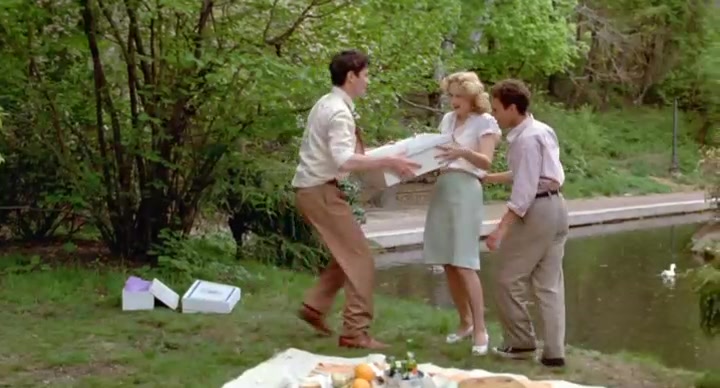Brooklyn’s Prospect Park is where Sophie Zawistowska is sometimes picnicked.
Stingo, the narrator, associates Sophie’s park outings as one of Watteau and Fragonard a fête champêtres. He supposes that it was a “pleasant game” for Sophie to buy “heroic sandwiches” at one of the “glorious delicatessens” on Flatbush Avenue, Brooklyn. She would stand at the counter “where there was so much to eat, such variety and abundance, that each time her breath stopped, her eyes filmed over with emotion. With slow and elaborate gravity, she would choose from the sourly fragrant, opulent, heroic squander of food.”
Sophie’s intention, however, is partly pleasure and partly a means to deaden her memories of Auschwitz. She gorges on sandwiches to stave off despair. “The privilege of choice,” she says, “gave her a feeling achingly sensual.” Another time, she says that she was “truly unhinged” by food and felt uneasy about it.
Only in retrospect is the irony of her picnic feasts apparent to Stingo. He remembers, particularly, a moment when he got a premonition of Sophie’s inner turmoil. Sitting on the grass beside the lake, Sophie linked the swans to her dead cousin from Lodz and got angry at the swans and cursed them in Polish before throwing debris from her bag.
Featured Image: Peter McNicol as Stingo, Meryl Streep as Sophie, and Kevin Kline as Nathan Alan in the Vale of Cashmere, Prospect Park. Alan Pakula’s Sophie’s Choice (1982)
See William Styron. Sophie’s Choice. New York: Random House, 1979; Alan J. Pakula. Sophie’s Choice (1982). Screenplay Alan J. Pakula based on William Styron’s novel (1979)

